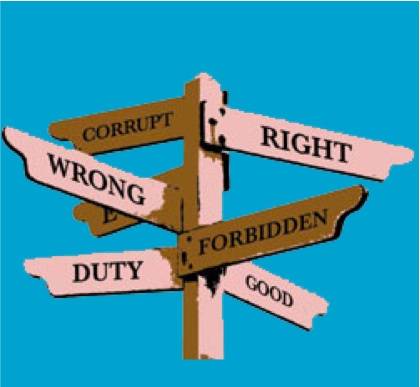The history of human civilization can be seen as history of evolving moral percepts of humans. With each epoch in civilization, the moral compass of human morality pointed towards a different North. That North was displaced with each passing epoch. Even though not to a completely different direction, the amount of displacement was significant nonetheless. The reason is that moral precepts are borne out of particular social and cultural norms. Our moral compass adjusts itself to the changing social and cultural norms. Tied to this conception of morality is the question of relativism and arbitrariness of moral stands.
To answer these questions, moralists and psychologists have developed thought experiments over the years. Thought experiments are hypothetical scenarios where people are asked how they will act in a given situation. Such situations involve impact over other human lives, of actions of the person in the experiment. These actions are concerned with deep-seated moral thinking of the person.
Let’s consider the trolley problem. It is a classic experiment in ethics and morality. Think of a train that is going down a track and there are five workmen busy with some work on the track. The train is moving fast towards them. But there is another track on which one person is working. You happen to be near a pulley; if you pull that pulley, the train will be diverted to the other track and you kill one person but five will be saved. So will you pull the pulley? The predominant majority of people answer in the affirmative.
Now consider a variant of the problem. You are standing on a walkover bridge besides a fat man. On the other side of the bridge on the track that train is coming and those five persons are working. You know somehow that if you push the fat man to the track, his body weight will stop the train and the five persons will be saved, will you push the fat man to the trail? No, I guess. If I am right then congrats you are not a psychopath. Only psychopaths will push over the fat man to the track underneath, experiments show.
So what’s the difference in the two cases? In both scenarios you kill one person while saving five. Why is there so drastic a change affecting your moral decision? You may say what’s the fault of the fat man? But what’s the fault of the other worker on the other trail? Different combinations of reasons and arguments of people in this experiment manifest the impact the ‘impersonality’ can have on moral decisions. The more the distance from the subject, who is going to be affected by your moral decision, the more irrelevant their suffering will be in your moral decision making.
But another related concern is: are we ready to suffer for our moral percepts and moral stands? An experiment was performed where a child was asked to break things, thrash things and act badly in a room. Now this bad child was seen by another child in another room through a screen and the child felt disgusted over the actions of the bad child. The bad child while thrashing things was crying for broccoli and the broccoli happened to be in possession of the other child. When an adult came to the child and asked for broccoli for the bad child, he or she refused and started to eat the broccoli himself/herself. Some other experiments show that children don’t like broccoli. Some children even had tears in their eyes while eating it, as the broccoli was so distasteful to them. But the children chose to punish bad behavior even at their own suffering.
These and many other hypothetical moral experiments show the contradictory and evolving nature of human morality. Morality developed as a tool to ensure group cohesion and further group solidarity even in pre-civilization stages of humanity. With civilization and changing social and later political landscape, the needs necessary for group solidarity and furthering of group’s interests also varied. With such evolution, the moral code also adopted itself to the changing social realities. In Hellenistic era, seeking one’s immortality through acts of courage was deemed the most moral thing, which changed to loyalty to the city-state afterwards.
Then came Abrahamic religions, where concept of all-knowing, ever-present and all-controlling deity was formed. The moral code was developed in Biblical era for varying needs of the believers and if seen from a closer perspective, it reflects the varying political realities of the time. The moral code was developed in such a way as to reflect the values as sanctioned by the deity or the moral percepts were ordained by God. But then over time as the groups having firm belief in such deity, came to power, the moral code was turned into laws and the laws were sanctioned as words of deity and thus unchangeable. This turned a varying moral code into a static and a dogma, unresponsive to reality. Questions about morality and its nature demand a vigorous debate and reopening of the possibility that moral percepts should change over time. Otherwise a very human tool which was developed to further group cohesion will eat away all roots of common human solidarity.






